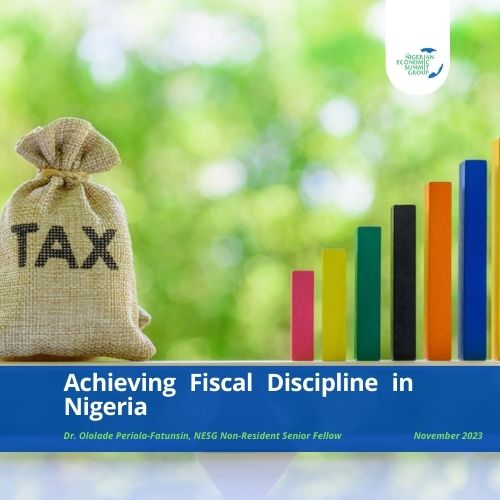Posted Wed, Nov 29, 2023 10:46 AM
Download Report (712 downloads)
Nigeria's fiscal landscape is marked by a complex interplay of economic, social, and political factors. Its heavy reliance on oil revenue has led to a volatile fiscal environment due to fluctuating global oil prices. This dependency exposes Nigeria to external shocks and vulnerabilities. Challenges include inadequate revenue mobilisation, inefficient public expenditure management, rising public debt, and widespread corruption. Fiscal discipline is essential for economic stability, sustainable development, poverty reduction, and long-term prosperity.
Fiscal discipline means managing public finances wisely for sustainability, reduced deficits, controlled debt, and efficient resource allocation. It involves measures like balanced budgets, transparency, debt sustainability, and adherence to fiscal rules.
Since 1999, Nigeria's fiscal trends show challenges in primary balance, revenue, spending, and debt. Corruption remains a major obstacle, evident in low rankings. Policy suggestions include transparent budgets, medium-term plans, debt management, fiscal rules, revenue diversification, and anti-corruption efforts. These steps enhance accountability, growth, and long-term prosperity.
In conclusion, Nigeria must enact comprehensive reforms for responsible spending, revenue diversification, transparent governance, and anti-corruption measures to achieve fiscal discipline and economic success.
